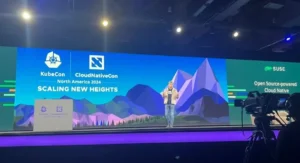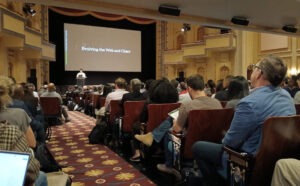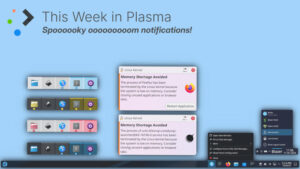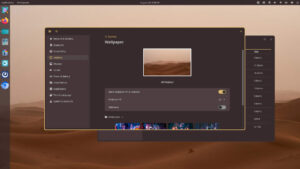Desktop use of BSD operating systems will take center stage on March 29, with the launch of GhostBSDCon 2025.
GhostBSD, a desktop operating system based on FreeBSD, announced late last week that it’ll be hosting GhostBSDCon 2025, an all new online conference focused on desktop BSD. The event will be held on March 29 on the Berkeley Forest FreeBSD Lodge website.
According to Michael Larabel at Phoronix who broke the news, the event will be focused on developing, deploying, and using desktop systems based on any of the BSDs and not specifically on GhostBSD, although I’m sure there won’t be a shortage of presentations focusing on the operating system of the event’s host.
At this early stage of the game, there’s really not much to know about this event other than the fact that a call for papers opened on January 14 and closes on February 21. The event’s Planning Committee will finalize the speaker selection by February 28, and the final schedule will be published on March 7. FOSS Force will publish a link to the schedule as soon as it’s available to us.
GhostBSD has had an interesting history. It started life as a FreeBSD-based operating system, with Gnome as its default desktop environment. In 2018 it dropped FreeBSD as its base in favor of TrueOS after that OSes desktop edition was spun into Linux-based Project Trident. At the same time, GhostBSD replaced the Gnome desktop with Mate — and in 2019 added a separate edition with the Xfce desktop. When TrueOS ceased to exist in 2020, GhostBSD returned to using FreeBSD as its base, but continued offering Mate and Xfce instead of Gnome.
Having a conference focused entirely on a desktop operating system is an oddity, which hasn’t always been the case. In the early days of Linux there were many conferences that focused primarily on desktop versions of Linux, mainly because through the 1990s Linux was seen as primarily a desktop operating system. These days conferences focusing on desktop anything — BSD, Linux, or proprietary — are much too rare.
We’ve reached out to the event’s organizers for additional information, but haven’t received a reply as this article goes to press.
Christine Hall has been a journalist since 1971. In 2001, she began writing a weekly consumer computer column and started covering Linux and FOSS in 2002 after making the switch to GNU/Linux. Follow her on Twitter: @BrideOfLinux







Tender thanks you championing sharing this!
https://nekkidnaked.com
It’s ever after inviting to glimpse unalike perspectives on this topic.
I increase the attainment and itemize put into this post – it provides valuable insights and clearly gives me something to dream about.
Looking forth to more theme like this!
Apprehend also – https://carusoscuisine.com
Tender thanks you an eye to sharing this!
https://lezbian-sex.net
It’s ever attractive to see many perspectives on this topic.
I appreciate the stab and charge put into this post – it provides valuable insights and indubitably gives me something to ponder about.
Looking forward to more content like this!
Apprehend also – https://crybdsm.com
Tender thanks you championing sharing this!
https://gayclub.cc
It’s always interesting to finance unalike perspectives on this topic.
I esteem the effort and charge rest into this list inform – it provides valuable insights and clearly gives me something to ponder about.
Looking head to more content like this!
Perceive also – https://youngjoeydaprinceworld.com